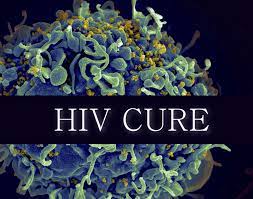Turku, Finland, January 9, 2025 — Groundbreaking research from the FinnBrain study at the University of Turku, Finland, has revealed that childhood maltreatment can alter the epigenetic profile of sperm, potentially impacting brain development in future generations. Published in Molecular Psychiatry, the study underscores the importance of understanding how early life stress can have long-lasting consequences through epigenetic inheritance.
Epigenetic inheritance involves the transmission of acquired traits or conditions to offspring without changes in the DNA sequence itself. Environmental factors, such as childhood maltreatment, can induce epigenetic modifications in gametes—changes that may be passed down to subsequent generations.
Key Findings and Implications
The study found that men who experienced high levels of childhood maltreatment exhibited several specific epigenetic changes in their sperm, including altered expression levels of the non-coding RNA molecule hsa-miR-34c-5p and methylation of the CRTC1 and GBX2 genes. These epigenetic markers are associated with brain development, raising concerns about the potential impact on offspring’s neurological health.
“This discovery opens up new avenues for studying the mechanisms of epigenetic inheritance and its influence on human development,” said Dr. Jetro Tuulari, the study’s lead author. “Demonstrating this in humans could fundamentally rewrite the rules of inheritance.”
Research Highlights
- The study involved 55 middle-aged men and accounted for various health factors, such as age, weight, and smoking habits.
- Men with high levels of childhood maltreatment showed lower levels of DNA methylation in three specific DNA regions and changes in several small non-coding RNA molecules.
- The findings build on earlier research linking paternal early life stress to offspring brain development.
Professor Noora Kotaja, a senior researcher in the study, emphasized the significance of epigenetic regulation in gametes. “Epigenetic inheritance via the sperm epigenome is a fascinating area of study, and our findings provide a foundation for future research into its mechanisms in both humans and animal models.”
Unanswered Questions
Although the study presents compelling evidence of an association between childhood maltreatment and epigenetic changes in sperm, researchers caution that the inheritance of these findings has not yet been proven. Further investigation is needed to explore how these changes affect offspring and whether they are consistently passed down.
“The FinnBrain cohort and other multi-generational datasets provide a unique opportunity for such high-quality studies,” said Professor Emeritus Hasse Karlsson, who initiated the FinnBrain project.
About FinnBrain
The FinnBrain study, launched in 2010, is a longitudinal research initiative involving over 4,000 families. It aims to uncover the environmental and genetic factors that influence child development. This latest study is part of ongoing research into the effects of paternal health and stress on offspring.
Future Directions
The researchers plan to examine the combined effects of childhood maltreatment, sperm epigenome, and offspring characteristics to better understand the mechanisms of epigenetic inheritance. As Dr. Tuulari noted, “This study is a stepping stone toward unraveling the complex interplay between environment, epigenetics, and human development.”
For more details, the study can be accessed in Molecular Psychiatry:
Jetro J. Tuulari et al., Exposure to childhood maltreatment is associated with specific epigenetic patterns in sperm, DOI: 10.1038/s41380-024-02872-3.












